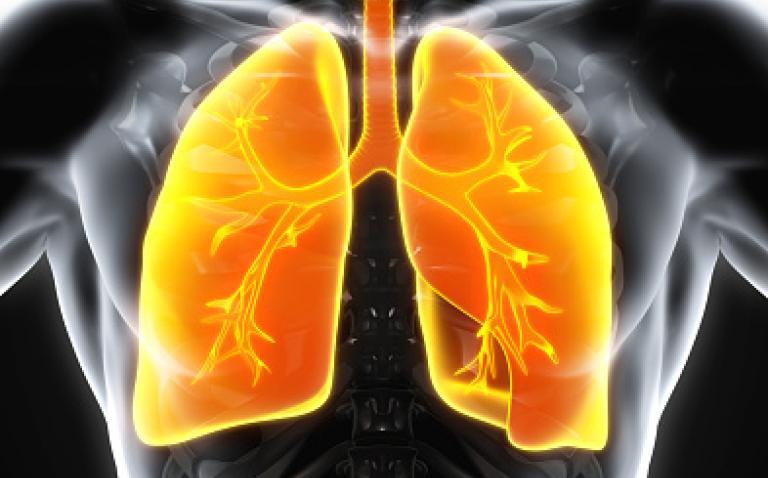The world’s first guidelines for chronic fungal lung infections for doctors and laboratories have been published by the European Respiratory Society (ERS) and the European Society of Clinical Microbiology and Infectious Diseases (ESCMID).
Published in the European Respiratory Journal, these new guidelines describe the important features of this disease and provide comprehensive treatment recommendations.
Chronic pulmonary aspergillosis (CPA) is a subtle and insidious problem in patients with already damaged lungs. It kills about 80% of sufferers over five years, unless diagnosed and treated with long-term antifungals. Across Europe, an estimated 240,000 people have CPA, and worldwide around 3 million. The late stages of CPA (aspergilloma) are familiar to respiratory specialists, but the early features are often missed.
Major improvements in understanding this debilitating and ultimately fatal disorder have resulted from research undertaken in Europe, India and Japan over the last 10 years. However, no therapies are approved by the European Medicines Agency (EMA) for treatment, and very few diagnostic tests and therapies have been compared. In many parts of the world, the basic tests required are not yet available.
Professor David Denning of the University of Manchester who lead the CPA guidelines group, said: “The UK National Health Service recognised the challenges posed by these patients by setting up the National Aspergillosis Centre and its associated laboratory the Mycology Reference Centre in 2009. The experience gained from seeing hundreds of patients has contributed to the quality of care, although much more research and new oral antifungal drugs are both required to reduce the marked disability caused by CPA.”
Patient Michael Miller, age 65 from Leeds, described his experience: “I had aspergillosis in 2006, which improved with a long course of antifungal capsules. In 2012, I started to get worse and worse, and it took three years to recognise recurrence of my aspergillosis. By this time, I was so breathless and my X-ray was much worse.”
ESCMID President Professor Murat Akova stated: “I am delighted that this ground breaking clinical guideline has been published; the management of chronic fungal infection, notably CPA, is difficult, requiring a high level of laboratory and clinical expertise.”
ERS Guidelines Director, Dr Marc Miravitlles, commented: “We welcome the publication of this guideline, which provides key insights into the main features of the disease and treatment recommendations. By establishing this expert consensus on the topic, we aim to improve the early diagnosis of CPA and increase recognition of the condition to ultimately improve outcomes for patients.”
The guidelines are a product of a two-year collaboration between ESCMID and ERS. In parallel to these CPA recommendations, ESCMID is currently developing wider guidelines for invasive aspergillosis in general, which will be published in due course. The latter are developed by Professor Andrew Ullmann of the Julius Maximilian University of Würzburg, chairman of ESCMID’s fungal infection study group EFISG.
EFISG chairman Andrew Ullmann commented: “This is first guideline on chronic pulmonary aspergillosis worldwide. It is the result of another joint effort of ESCMID and ERS experts who, in a truly interdisciplinary collaboration, prepared and published guidance for colleagues on a group of complex diseases that are difficult to manage. Aspergillosis is more than chronic lung infection and a larger document addressing all aspects of Aspergillosis infections is under preparation by EFISG.”










